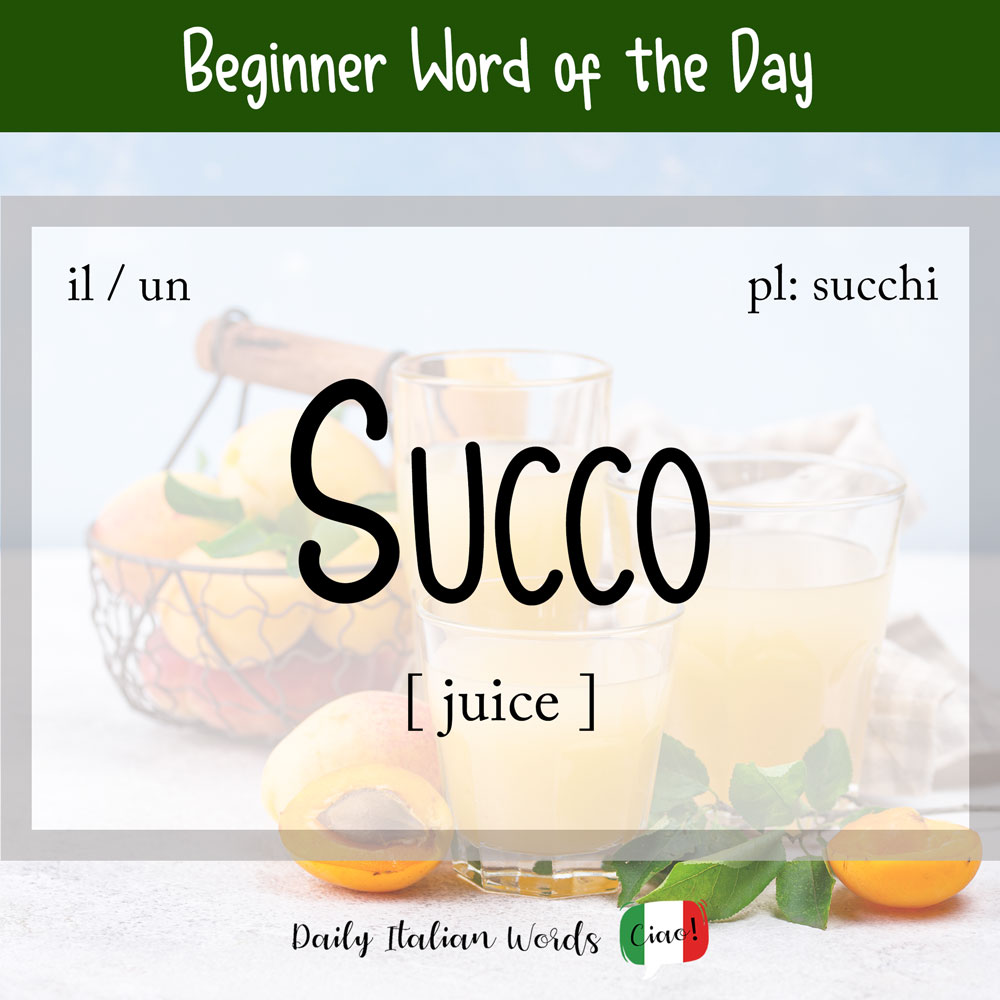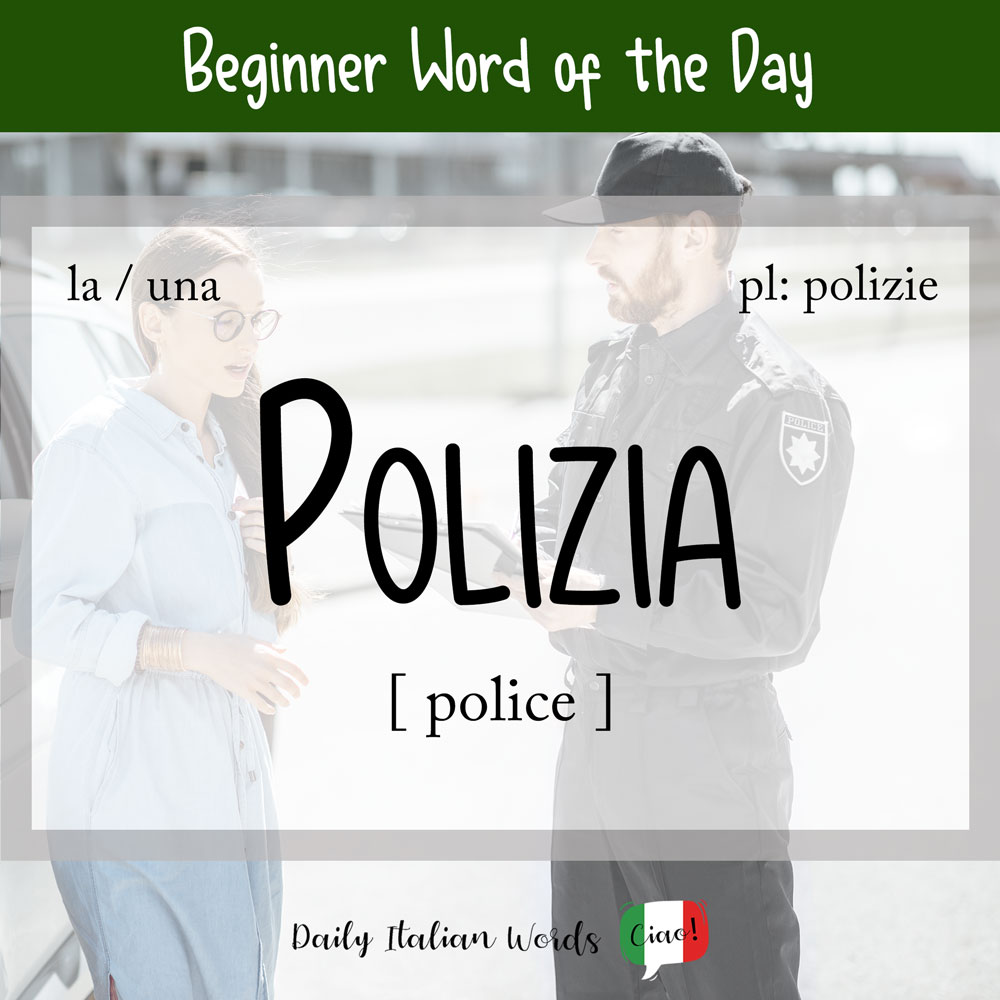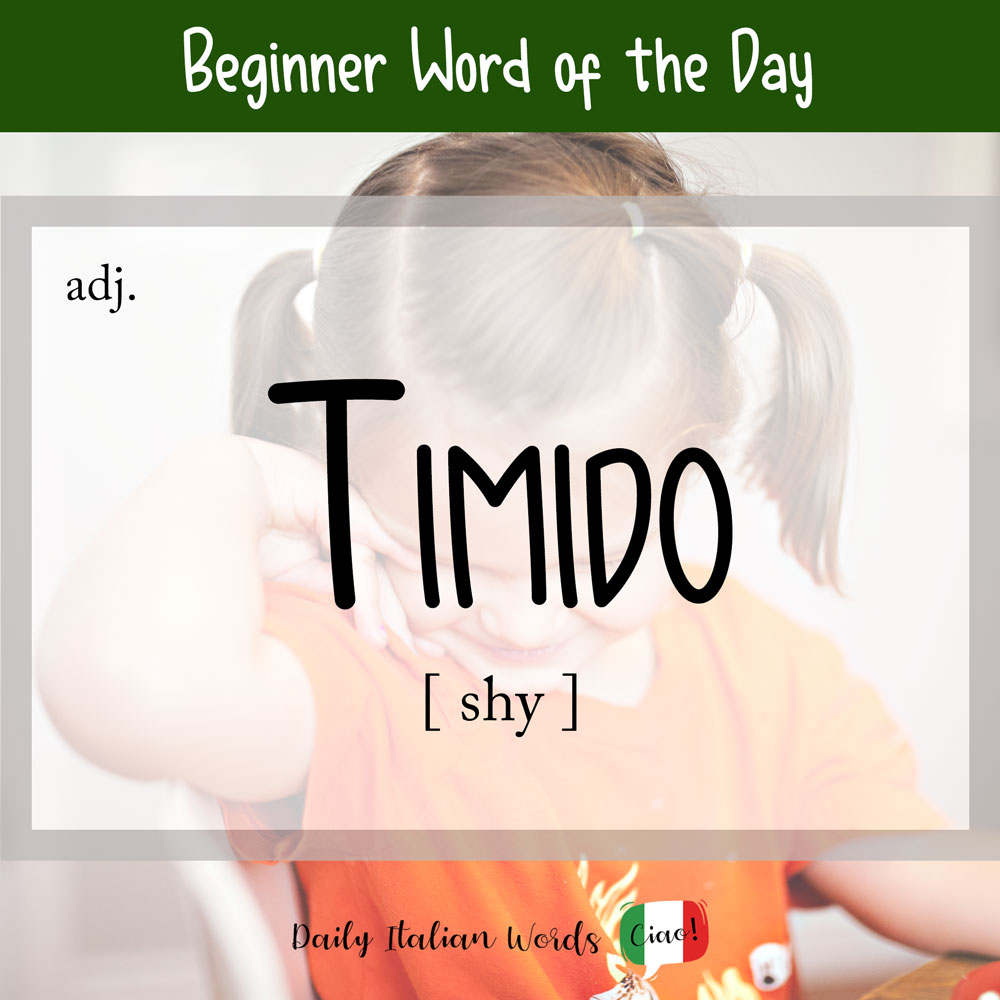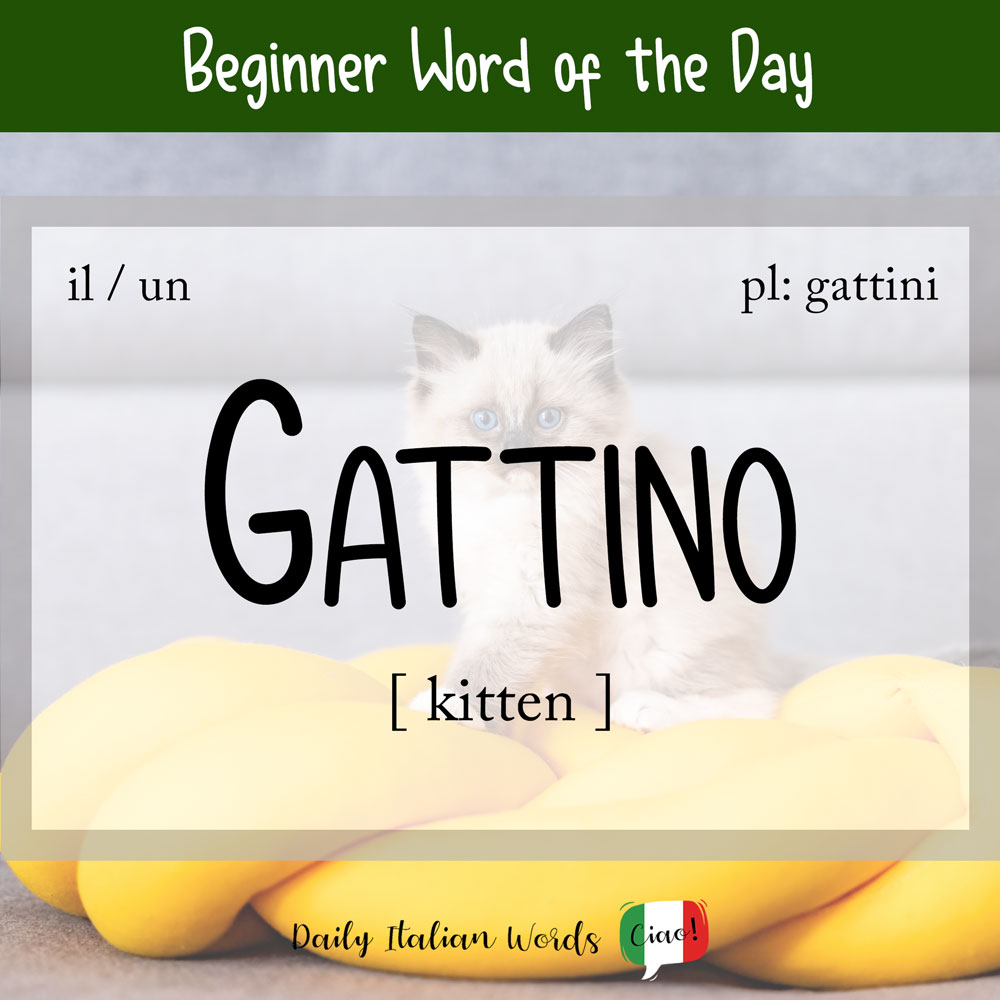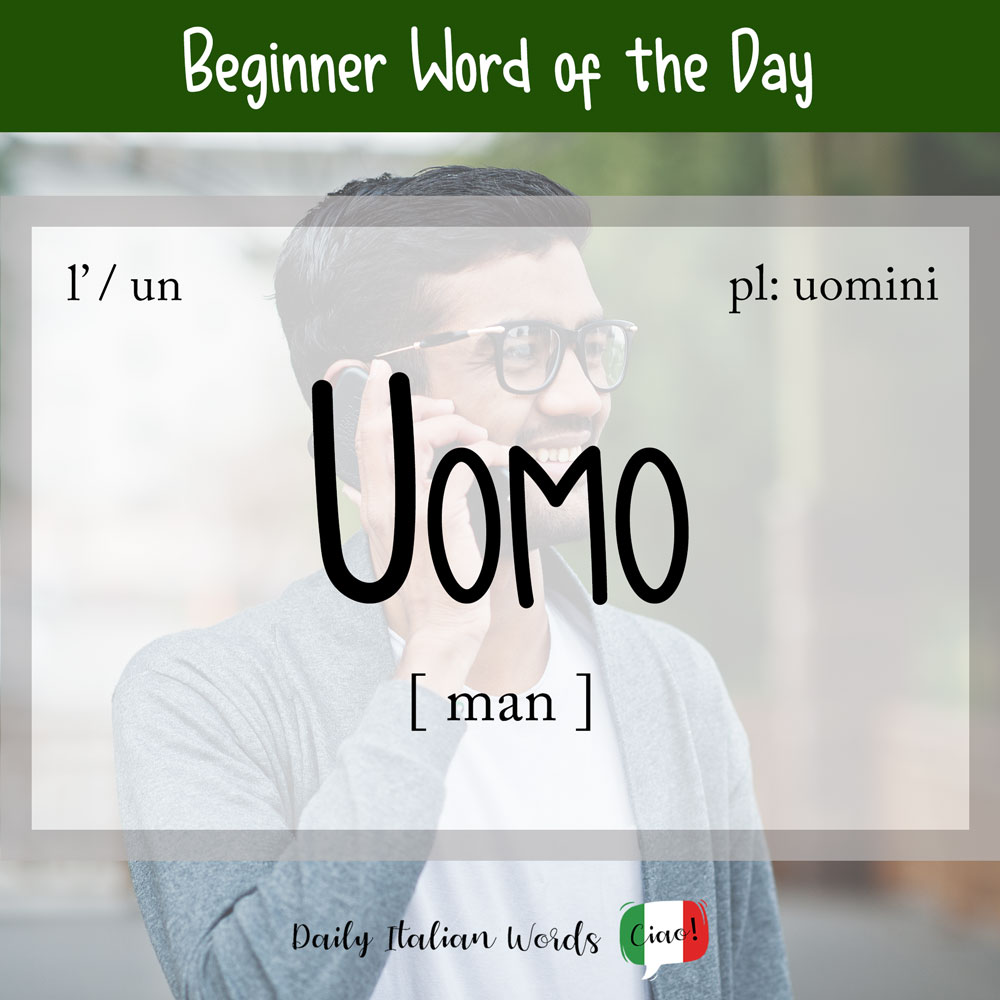Italian Word of the Day: Succo (juice)
The Italian word succo (plural: succhi), meaning juice in English, comes from the Latin succus. An easy way to remember this word is to think of the term succulent (full of juice). It is closely related to the verb succhiare meaning to suck, presumably because at the time, people would suck on the fruit to …

